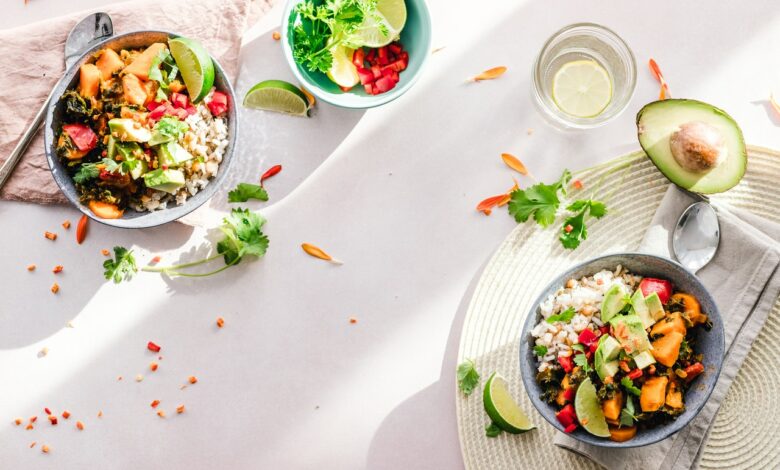What can you eat or drink while intermittent fasting

If you’re interested in intermittent fasting (IF), you may be wondering what you can eat or drink while you’re fasting. There are a few things to consider when choosing what to consume while fasting, and we’ll explore those in this post.
It’s important to remember that intermittent fasting is not a diet, it’s simply a pattern of eating. Also, it’s important to choose foods and drinks that will help you stick to your fasting schedule.
Choose foods and drinks that will help you stay hydrated. Water is always a good option, but you may also want to consider beverages like unsweetened tea or coffee.
Why do people start intermittent fasting?
Intermittent fasting is an increasingly popular dieting pattern that involves a cycle between periods of fasting and eating. There are a number of reasons why people may start intermittent fasting. Some people do it for weight loss, others do it for health reasons, and some people do it for religious or spiritual reasons.
IF has been shown to have a number of health benefits, including weight loss, improved insulin sensitivity, reduced inflammation, and more. Also, some health experts claim that intermittent fasting can increase growth hormone levels and promote tissue repair and regeneration, which may be beneficial for athletes or people who are recovering from injury.
While IF has many potential health benefits, it’s not necessarily right for everyone. This way of eating can be challenging to stick to and may not be suitable for people with certain medical conditions.
What to drink during intermittent fasting?
As we mentioned earlier, it’s important to stay hydrated while intermittent fasting. Water is always a great choice, but you may also want to consider beverages like unsweetened tea or coffee.
Avoid sugary drinks or alcoholic beverages while fasting, as these can break your fast and defeat the purpose of intermittent fasting. Here’s what you should drink to stay in a fasted state:
- This should be your go-to beverage while fasting. Drink it throughout the day to stay hydrated and help stave off hunger.
- Unsweetened tea or coffee. These beverages can help boost your energy levels and metabolism during a fast.
- Bone broth. This is a great option if you’re feeling a bit hungry during your fast. It’s high in nutrients and will help to keep you satisfied until your next meal.
- Vegetable juice. If you’re looking for a way to get more vitamins and minerals while fasting, vegetable juice is a good option. Just be sure to avoid juices that are high in sugar or artificial sweeteners.
What to eat during intermittent fasting?
When it comes to choosing what to eat while IF, there are a few things to keep in mind. You should choose foods that are high in nutrients and will help you feel satisfied until your next meal.
When you’re intermittent fasting, there are a few different foods you can eat. There are no rules about specific foods or timings. You simply limit the window of time during which you eat each day. Here are some examples of foods you can eat during each phase of intermittent fasting:
Phase 1
During the first phase of intermittent fasting, which is usually the 8-hour window after you’ve completed your last meal of the day, you can eat any type of food. This includes both solid foods and liquids. However, it’s important to remember that you should still stick to healthy, nutrient-rich foods during this phase.
Phase 2
During the second phase of intermittent fasting, which is typically the 16-hour window between your last meal of the day and your first meal of the next day, you can only consume liquids. This includes water, tea, coffee, and other non-calorie beverages. You cannot consume any solid foods during this phase.
Phase 3
During the third and final phase of intermittent fasting, which is typically the 8-hour window between your first meal of the day and your last meal of the day, you can eat any type of food. However, it’s important to remember that you should still stick to healthy, nutrient-rich foods during this phase.
What are the negative effects of intermittent fasting?
If you’re considering trying intermittent fasting, it’s important to be aware of the potential risks and side effects. While this type of dieting can lead to weight loss and other health benefits, it’s not for everyone.
IF can cause dehydration, headaches, low blood sugar, and irritability. It can also make it difficult to concentrate and make you more susceptible to overeating. If you have any medical conditions, it’s important to speak with your doctor before starting an intermittent fasting diet.
Additionally, women who are pregnant or breastfeeding should not fast. There are also some people who should not fast, including people with eating disorders, Type 1 diabetes, and other chronic health conditions. Additionally, there are a few potential negative side effects of IF to be aware of. These include:
Hunger
One of the most common side effects of intermittent fasting is hunger. This is especially true during the first few days or weeks of starting a fast. However, your body will adjust over time and you will likely find that your hunger pangs become less frequent.
Irritability
Another common side effect of intermittent fasting is irritability. This is usually caused by hunger or dehydration. If you find yourself feeling irritable while fasting, try to drink plenty of water and eat small snacks throughout the day to help stave off hunger.
Low energy levels
Some people may also experience low energy levels while intermittent fasting. This is usually due to not eating enough calories or nutrients during the day. If you find yourself feeling tired while fasting, try to eat foods that are high in protein and healthy fats to help boost your energy levels.